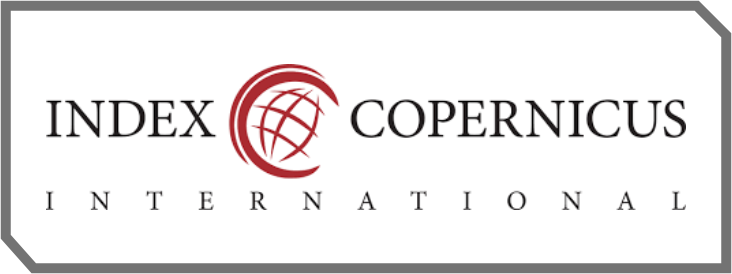MBKM Policy Study: Independent Learning Curriculum Policy Analysis in the Indonesian Language Study Program Islamic University of Nusantara Bandung
DOI:
https://doi.org/10.59525/gej.v3i2.817Keywords:
MBKM; Independent Curriculum; Policy on Higher Education; POAC; Indonesian Language Education Program.Abstract
The Merdeka Belajar Kampus Merdeka (MBKM) policy is expected to be able to answer the challenges of higher education in facing the demands of a dynamic world of work. This study aims to analyze the implementation of the MBKM policy in the Indonesian Language Education Study Program at Universitas Islam Nusantara Bandung. The approach used is descriptive qualitative with a policy study design, referring to the POAC managerial function (Planning, Organizing, Actuating, and Controlling). Data were collected through in-depth interviews, documentation studies, and participatory observations of lecturers, students, and study program managers. The results show that the MBKM policy has been implemented through various programs such as Teaching Campus and student entrepreneurship, but still faces obstacles such as cross-institutional coordination and limited technical understanding among students. Periodic evaluation and outcome-based curriculum adjustments are important strategies in addressing these challenges. This study concludes that the implementation of MBKM shows a positive direction, but still needs institutional strengthening, increased human resource competence, and integrated information system support. The findings are expected to be a reference for stakeholders in formulating higher education policies that are more adaptive and contextual.
References
Clark, B. R. (1983). The Higher Education System: Academic Organization in Cross-National Perspective. University of California Press.
Creswell, J. W., & Poth, C. N. (2018). Qualitative Inquiry and Research Design: Choosing Among Five Approaches (4th ed.). Sage Publications.
Dunn, W. N. (2018). Public Policy Analysis: An Integrated Approach (6th ed.). Routledge.
Fitriyah, L., & Suyanto, S. (2022). Analisis Implementasi MBKM pada Perguruan Tinggi Swasta Berbasis POAC. Jurnal Administrasi Pendidikan, 29(2), 123–135. https://doi.org/10.24832/jap.v29i2.1989
Giacquinta, J. B. (2021). Organizational Theory for Educational Change. Routledge.
Hapsari, L., & Laksana, B. E. (2022). Analisis Implementasi MBKM pada Program Studi Non-Vokasi. Jurnal Ilmu Pendidikan, 8(2), 112–126.
Kemendikbud. (2020). Peraturan Menteri Pendidikan dan Kebudayaan Republik Indonesia Nomor 3 Tahun 2020 tentang Standar Nasional Pendidikan Tinggi. Jakarta: Kementerian Pendidikan dan Kebudayaan.
Kezar, A., & Maxey, D. (2022). Envisioning the Faculty for the 21st Century. Rutgers University Press.
Kolb, D. A. (1984). Experiential Learning: Experience as the Source of Learning and Development. Prentice Hall.
Lipsky, M. (1980). Street-Level Bureaucracy: Dilemmas of the Individual in Public Services. New York: Russell Sage Foundation.
Mazmanian, D. A., & Sabatier, P. A. (1983). Implementation and Public Policy. Scott, Foresman.
Mezirow, J. (1997). Transformative Learning: Theory to Practice. New Directions for Adult and Continuing Education, (74), 5–12.
Miles, M. B., Huberman, A. M., & Saldaña, J. (2014). Qualitative Data Analysis: A Methods Sourcebook. SAGE Publications.
Moleong, L. J. (2021). Metodologi Penelitian Kualitatif (Edisi Revisi). Remaja Rosdakarya.
Patton, M. Q. (2002). Qualitative Research & Evaluation Methods. SAGE Publications.
Purwanto, E. A., Setiawan, A., & Rakhmawati, T. (2023). Transformasi Kurikulum MBKM di PT Swasta: Studi Kasus. Jurnal Administrasi Pendidikan Indonesia, 14(1), 55–70.
Robbins, S. P., & Coulter, M. (2022). Management (15th ed.). Pearson Education.
Rossi, P. H., Lipsey, M. W., & Freeman, H. E. (2019). Evaluation: A Systematic Approach (8th ed.). Sage Publications.
Siahaan, M. (2022). Tantangan Implementasi MBKM di PTS: Studi Eksploratif. Indonesian Journal of Educational Policy, 3(1), 88–101.
Simamora, R. E., & Sihombing, R. (2021). Challenges of MBKM Implementation in Private Universities, Jurnal Pendidikan Tinggi, 2(1), 22–33.
Terry, G. R. (2010). Principles of Management. Jakarta: Bumi Aksara.
Utomo, D. H. (2021). Kesenjangan Implementasi MBKM antara PTN dan PTS. Jurnal Pendidikan dan Kebudayaan, 11(3), 201–215.
Yuliana, D., & Anwar, A. (2023). Strategi Implementasi Kurikulum MBKM: Studi Kasus di PTS Jawa Barat. Jurnal Manajemen Pendidikan Islam, 5(1), 55–70. https://doi.org/10.31294/jmpi.v5i1.3081
Downloads
Published
How to Cite
Issue
Section
License
Copyright (c) 2025 Global Education Journal

This work is licensed under a Creative Commons Attribution-ShareAlike 4.0 International License.










